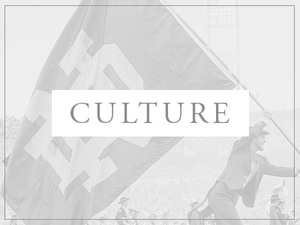 "
"
Each year, Notre Dame sends over 200 students 3,500 miles across the ocean to study in Ireland. They arrive back on campus eager to share the Irish culture, history and language. But many of those students — and others who don’t study abroad — find that same Irish tradition in Notre Dame’s classrooms, less than 3,500 steps from their dorm rooms.
Founded nearly 30 years ago, the Keough-Naughton Institute for Irish Studies is now expanding its programming after receiving a generous gift from Brian and Deidre Clingen.
“What's going to happen to Ireland, North and South, as the demographics change? How are you going to make for an all-Ireland economy, in the wake of Brexit? These are indeed pressing questions,” said Patrick Griffin, director of the Institute for Irish Studies. “They're more pressing still, in an Irish context, because of a history of confessional conflict, and also a history of violence.”
The Clingen Family Center for the Study of Modern Ireland will focus on contemporary economic, political and social issues facing the country. As patrons of the University and of the Institute, the Clingens are invested in the program because of Brian’s status as a Notre Dame alumnus and his familial ties to Ireland. His interest in its political traditions, intellectual life and cultural legacy is reflected in the expansion.
“I'd love to see us reach back into earlier moments in the creation of Irish modernity, even back to medieval Ireland, because you cannot understand contemporary modernity without a long historical view. If you only look at what's contemporary, you're going to misunderstand it,” said Barry McCrea, professor of English, Irish Studies and Irish Language and Literature, regarding the expansion.
Griffin hopes that within two years the center will be offering a variety of new courses, bringing in speakers from Ireland and continuing to publish cutting-edge research. Beyond these changes to the center in Ireland, he hopes to strengthen the relationship between the study abroad programs in Ireland and the Irish Studies department on campus.
McCrea, who also teaches Irish literature courses in Dublin, finds that Irish literature can be a vessel for understanding the culture of the world abroad. He says that Irish literature’s “outsized impact” on world literature allows Notre Dame students to delve deeper into the culture of Ireland, beyond its visible and tangible aspects.
At Notre Dame, the Irish Studies department works to bring a little bit of that same Irish culture to students. Mcrea said Ireland’s unique and dynamic role as a “weird confluence of the global and the very global and the very local” creates an environment in which students can explore the contradictions of the modern world.
“Someone famously said that Ireland is almost a laboratory for all the things that have happened that created the modern world,” Griffin said. “If we study Ireland, we understand the globe.